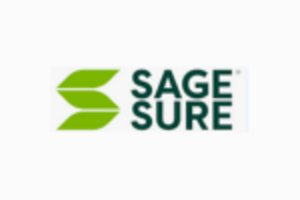
When it comes time to renew your homeowners insurance, you likely dread checking to see if your rates have increased. Due to a number of factors, homeowners insurance rates tend to increase from year to year, but some states have experienced higher rate increases than others in a year’s time. Check to see how much homeowners insurance rates in your state have increased.
Top 10 states with the highest homeowners insurance rate increases
On average, Massachusetts experienced the highest rate homeowners insurance rate increase among all 50 states and Washington, D.C. The National Association of Insurance Commissioners (NAIC) releases a report each year outlining the cost of homeowners insurance in each state. The NAIC’s most recent report, released in 2019, revealed homeowners insurance rates for 2016. When comparing the average rates of an HO-3 homeowners insurance policy in each state from 2015 and 2016, these are the states that experienced the highest homeowners insurance rate increases over that year.
- Massachusetts
- Colorado
- Rhode Island
- Montana
- Georgia
- Michigan
- Connecticut
- Nebraska
- Maryland
- North Dakota
Homeowners insurance rate increases by state
In the table below, you can find homeowners insurance rate increases for each state and Washington, D.C. To calculate the rate increases, we compared average rates from the NAIC reports from 2015 and 2016 for HO-3 policies for each state. The states are ranked starting with highest dollar amount increase. Some states did have homeowners insurance rate decreases from 2015 to 2016, which can be seen under this table.
| State | Average premium in 2015 | Average premium in 2016 | $ increase |
|---|---|---|---|
| Massachusetts | $1,379 | $1,451 | $72 |
| Colorado | $1,383 | $1,446 | $63 |
| Rhode Island | $1,446 | $1,496 | $50 |
| Montana | $1,081 | $1,130 | $49 |
| Georgia | $1,152 | $1,200 | $48 |
| Michigan | $908 | $952 | $44 |
| Connecticut | $1,411 | $1,455 | $44 |
| Nebraska | $1,360 | $1,402 | $42 |
| Maryland | $982 | $1,022 | $40 |
| North Dakota | $1,200 | $1,239 | $39 |
| Delaware | $780 | $816 | $36 |
| Tennessee | $1,149 | $1,185 | $36 |
| Arkansas | $1,312 | $1,348 | $36 |
| Wyoming | $1,088 | $1,120 | $32 |
| Ohio | $819 | $850 | $31 |
| South Dakota | $1,096 | $1,125 | $29 |
| Washington, D.C. | $1,196 | $1,225 | $29 |
| Alabama | $1,358 | $1,386 | $28 |
| Missouri | $1,253 | $1,280 | $27 |
| Iowa | $919 | $945 | $26 |
| Vermont | $873 | $898 | $25 |
| New Jersey | $1,149 | $1,174 | $25 |
| New Hampshire | $941 | $965 | $24 |
| Maine | $843 | $866 | $23 |
| Kentucky | $1,062 | $1,085 | $23 |
| North Carolina | $1,075 | $1,098 | $23 |
| New York | $1,287 | $1,309 | $22 |
| Louisiana | $1,945 | $1,967 | $22 |
| Virginia | $946 | $966 | $20 |
| Indiana | $983 | $1,003 | $20 |
| Minnesota | $1,323 | $1,340 | $17 |
| Kansas | $1,531 | $1,548 | $17 |
| Mississippi | $1,508 | $1,525 | $17 |
| Oregon | $643 | $659 | $16 |
| Pennsylvania | $913 | $927 | $14 |
| New Mexico | $982 | $996 | $14 |
| California | $986 | $1,000 | $14 |
| Wisconsin | $750 | $762 | $12 |
| Hawaii | $1,014 | $1,026 | $12 |
| Idaho | $692 | $703 | $11 |
| Washington | $811 | $822 | $11 |
| West Virginia | $907 | $917 | $10 |
| Illinois | $1,033 | $1,042 | $9 |
| Nevada | $737 | $742 | $5 |
| South Carolina | $1,284 | $1,285 | $1 |
The table below lists states that experienced homeowners insurance rate decreases from 2015 to 2016. The states are ranked starting with the state with the largest decrease. Florida’s homeowners insurance rates are high to begin with, but the state experienced the largest homeowners insurance rate decrease in America.
| State | Average premium in 2015 | Average premium in 2016 | $ decrease |
|---|---|---|---|
| Florida | $1,993 | $1,918 | $75 |
| Texas | $1,991 | $1,937 | $54 |
| Utah | $673 | $664 | $9 |
| Alaska | $982 | $974 | $8 |
| Arizona | $810 | $803 | $7 |
| Oklahoma | $1,879 | $1,875 | $4 |
While this is the most recent data available from the NAIC, keep in mind that it’s from 2016. Your rates have likely changed since then. Also keep in mind these are average premiums for an HO-3 policy for insurance coverage of all values.
Why do homeowners insurance rates increase?
Much like your car insurance rates, your homeowners insurance rates may increase for many reasons. While many factors that affect homeowners insurance rate increases are out of your control, there are a few you can control. If you’re in one of the states that experienced a rate increase, the following reasons may have been why.
- The rising cost of construction: The cost of construction may increase each year leading to homeowners insurance rate increases. This is because it becomes more expensive to repair or replace your home. Your dwelling coverage limit may need to increase if this happens in order for you to have adequate coverage to rebuild your home if needed. Construction cost is usually higher in areas that have a high population density.
- Your home’s value has increased: If you recently made improvements to your home, such as upgrades or renovations, you likely increased the value of your home. An increased value requires more homeowners insurance coverage, which leads to increased rates. Like the cost of construction, the value of homes is typically higher in areas with a high population density.
- Severe weather and natural disasters: If your area is prone to certain natural disasters, like hurricanes or wildfires, your homeowners insurance rates are likely already higher than other areas. If your area experiences a natural disaster that caused significant damage and homeowners insurance claims, this may be a reason for a rate increase. Even if you didn’t file an insurance claim for damage from the storm, your rates will likely still increase in order to cover the excess loss your insurance company has faced. For more information on this, we recommend reading why did my car and homeowners insurance rates increase.
- You filed a homeowners insurance claim: If you filed a homeowners insurance claim, that may be the cause of your homeowners insurance rates increasing. Insurance companies tend to offer discounted homeowners insurance rates to homeowners who have gone a length of time without filing a claim.
- Increased crime rate: If you live in a safe area that doesn’t experience a lot of crime, your rates will be lower. Therefore, if your area has seen an increased amount of crime, including house break-ins, your rates may increase because of it.
- Insurance fraud: Unfortunately, insurance fraud happens all across the United States and leads to increased insurance rates for everyone. Homeowners insurance fraud can happen when people fake damage or theft to their home or submit a claim for a higher value than is necessary to cover the actual loss. Insurance fraud is a serious crime and leads to unfair increases to homeowners all across the country.
- Your credit score went down: Your credit score affects the cost of homeowners insurance in most states except for California, Hawaii and Maryland. If you have a poor credit score and you don’t live in one of those three states, your homeowners insurance rates will likely suffer.
Have your homeowners insurance rates increased over the past year? Let us know about your experience by writing a review of your homeowners insurance company.
If your insurance rates have gone up, it may be a good time to shop around to see if you can find better rates with a better company. A great place to start is our homeowners insurance rankings, which is based on which insurers consumers have reported the best experiences with.
The content on this site is offered only as a public service to the web community and does not constitute solicitation or provision of legal advice. This site should not be used as a substitute for obtaining legal advice from an insurance company or an attorney licensed or authorized to practice in your jurisdiction. You should always consult a suitably qualified attorney regarding any specific legal problem or matter. The comments and opinions expressed on this site are of the individual author and may not reflect the opinions of the insurance company or any individual attorney.







